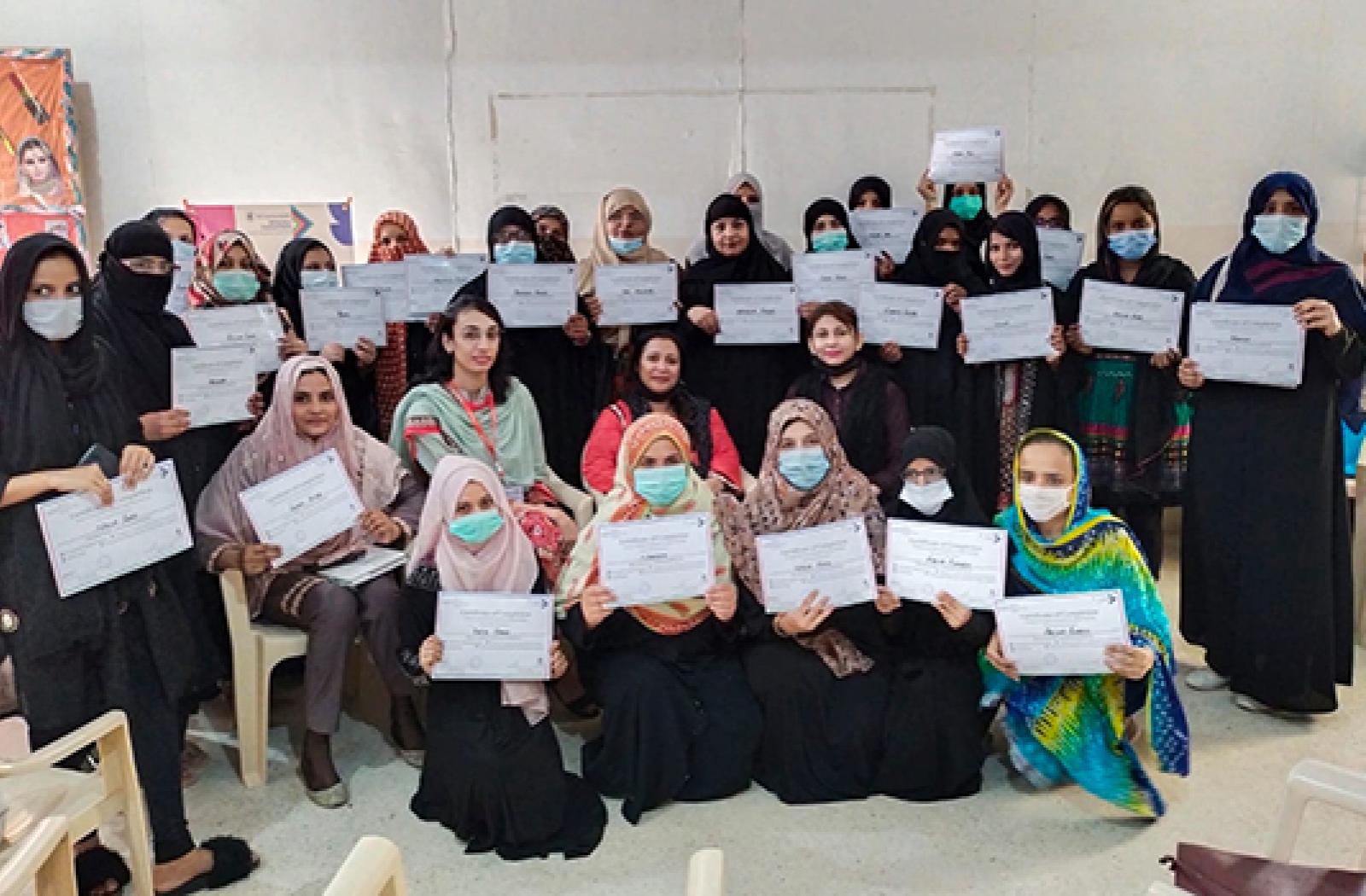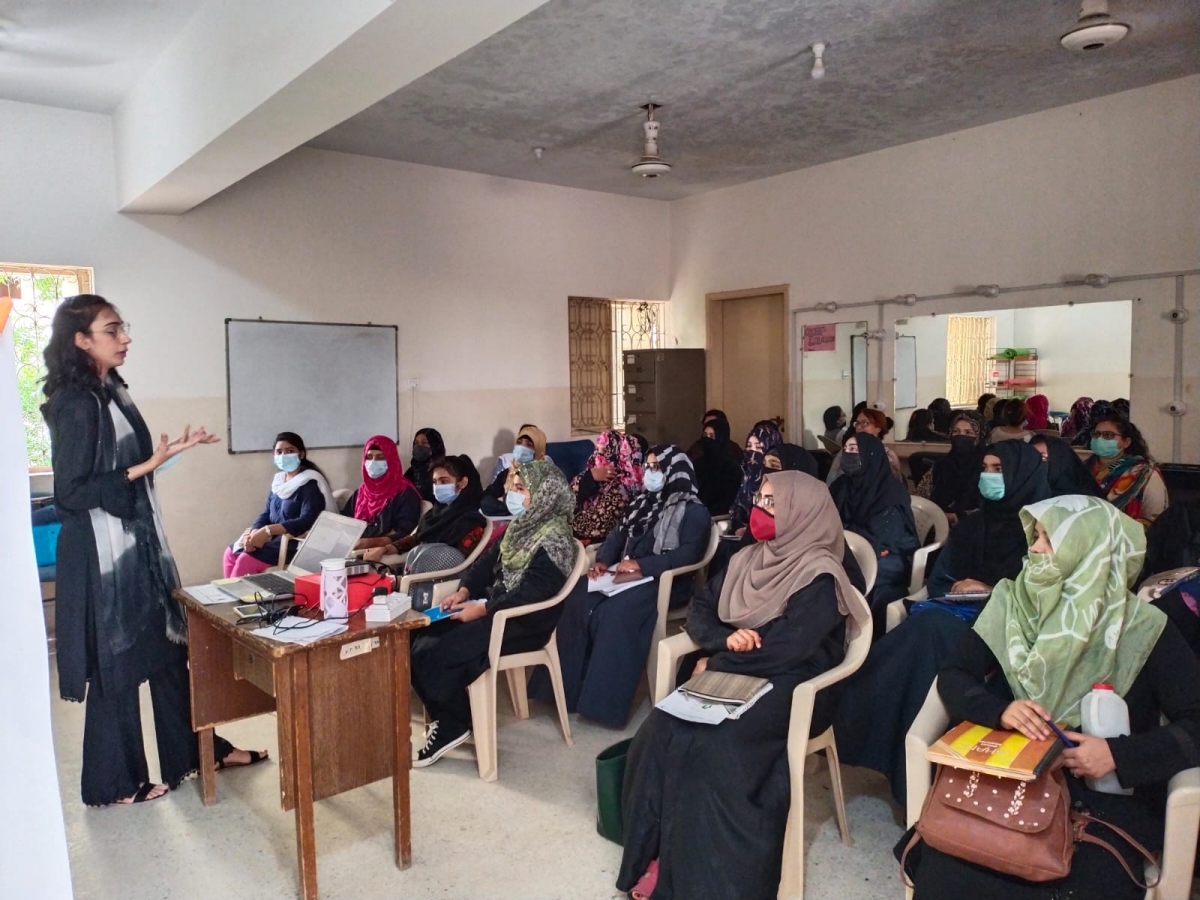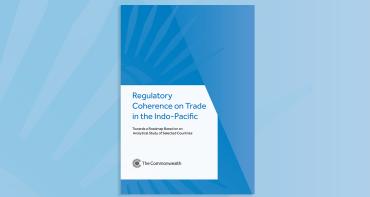More than 200 women have completed a Women Economic Entrepreneurship Training (WEET) programme, delivered in collaboration with the Commonwealth Secretariat, to empower them with the skills to establish their own businesses.

More than 200 women have completed a Women Economic Entrepreneurship Training (WEET) programme, delivered in collaboration with the Commonwealth Secretariat, to empower them with the skills to establish their own businesses.
The training course, which took place in Karachi, Pakistan, gave participants valuable insights into the business world.
WEET’s programme was developed in line with the Commonwealth’s entrepreneurial policy toolkit guidelines and supported by the People's Incubation New Enterprise (PINE) Global, which helps young entrepreneurs build and grow start-ups.
Empowering women
The project offered participants a three-month hands-on training workshop designed to enhance the financial and entrepreneurial skills they need to support their business models.
It gave women from underprivileged backgrounds an opportunity to strengthen their careers, build new relationships and help them realise their full potential.
During the nine sessions, the women learnt vital entrepreneurial skills including planning techniques, marketing strategies, and how to write a business plan.
Young women taking the lead
WEET trainer Sabaa Haider spoke about the benefits of the project for Pakistani women, particularly during the global pandemic. She said: “I am extremely proud as a trainer that I could be part of the WEET programme. It has been a wonderful journey and I really appreciate the Commonwealth’s belief in what women in Pakistan are capable of.
“A woman when she realises how powerful she is can change not only the circumstances of her own but also of her society and of course the nation.”
Women in Pakistan have felt the effects of the pandemic with a decline in jobs and limited access to both finance and technology. A survey of WEET participants revealed that their biggest motivation to start a business was to support their families.
Arts and crafts business owner and course participant, Sana Arslen, explained that the challenges of COVID-19 had made it harder for her to find work: “Last year the pandemic was very challenging for me, there were no jobs to apply for, so I decided to start my online business.”
Out of the 212 participants who completed the course, the majority were aged between 16-20, with more than half being high school and intermediate students. Thirty six percent are currently running their own business, whilst 30% have a start-up plan and 33% are in the idea generation stage.

Course participants gained financial and entrepreneurial skills to help them establish their own businesses.
Positive feedback
The programme was well-received by the participants with over 80% saying the training content was useful, the trainers were well prepared, and the mentors explained topics which can usually be difficult to understand.
Participant Aqsa Shoaib, who runs a beauty salon, said: “It was a wonderful experience for me to meet with mentors who facilitated us very well. I have a very small salon business, and today I learnt how to run my salon smoothly.”
Arts and crafts business owner, Anum Shah, added: “Attending the WEET programme, I learnt something different which no one had taught me before and that was the business strategies.”
Both participants and trainers praised the Commonwealth’s assistance. Erum Masood, a WEET consultant and trainer, said: “The support extended by the Commonwealth enabled us to conduct these trainings and I am extremely grateful. I would like to say thank you to the Commonwealth for believing in us to deliver this programme.”
Future sessions
Commonwealth Secretariat Programme Manager, Sushil Ram, described the initiative as a key part of the organisation’s commitment to youth and women’s empowerment.
He said: “The Secretariat is pleased to support this project as this will provide young women in Karachi with the skills necessary to establish their own businesses and create pathways for livelihood and employment. The Commonwealth is committed in its efforts to support and encourage youth entrepreneurship as a pragmatic strategy to address spiralling youth unemployment and to positively harness young people’s potential.”
He added that the work will support planned upcoming WEET training sessions across the country and provide a manual for future sessions, which can be made available online and can be taken up by universities.



